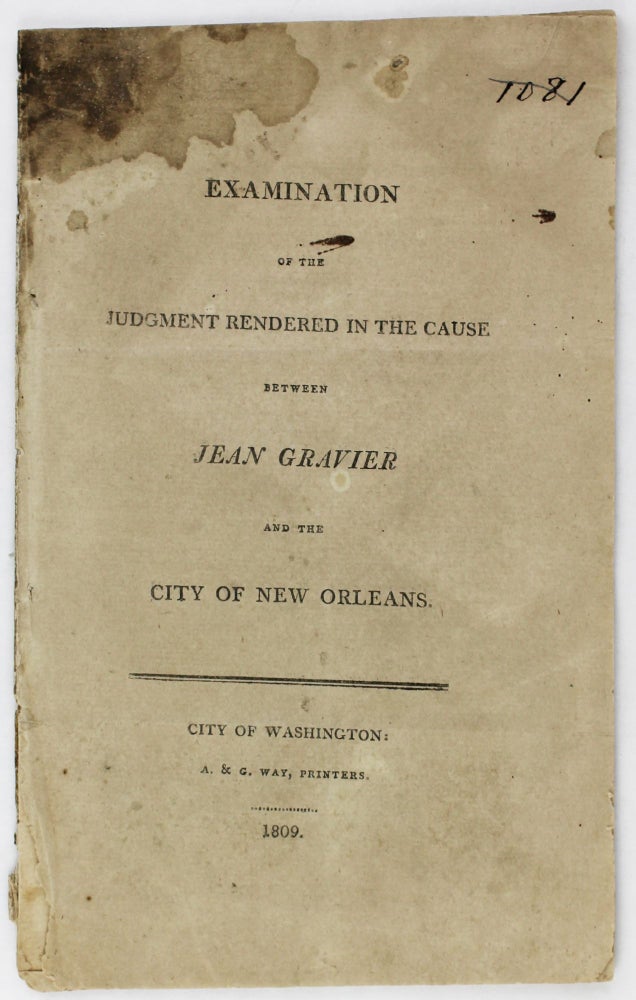
Examination of the Judgment Rendered in the Cause Between Jean Gravier and the City of New Orleans
Washington DC: A. & G. Way, 1809. 19,[1]pp. Disbound. Soiling to top margin of first few leaves, minor foxing and toning, small inked number on title page, bottom corner of first text leaf clipped. Good plus. Item #3186
A scarce early entry in the landmark Federal-era Louisiana legal battle known later as the New Orleans "batture case." Jean Gravier, a major landowner in New Orleans, claimed title to an "alluvian bank, such as in this country is called a batture, which is covered by the Mississippi when its waters are at their greatest swell, but is left dry nine months in the year. From the founding of the City of New Orleans...it had served the public uses at all times, under the successive protection of the French and Spanish governments." Gravier's claim triggered litigation with the City, which refused to acknowledge his title. In 1807, Lousiana's Superior Court awarded judgment to Gravier. The battle for the batture had only just begun.
In the present work, the author, Louisiana lawyer and attorney general Louis Moreau de Lislet, exposes flaws in the court's decision, "the consequences of which are so detrimental to the public, not only of New Orleans, but of the whole territory, and even of the neighboring states, which bring hither their produce and merchandise." Further, Moreau de Lislet disputes the surveying methods used and the conclusions that the Court derived from the history of the right of alluvion and other property claims grounded in French and Spanish law. Though unnamed in the present work, Moreau de Lislet's authorship is confirmed by the copy at the Library of Congress, in which Jefferson notes "by Moreau de Lislet."
This case, the opening salvo in extensive litigation regarding the batture, was continued by Gravier's successor in title, Edward Livingston, who battled not only the city but the federal government for years. The case lured in none other than President Thomas Jefferson, who sided with New Orleans. Jefferson argued that the portion of the batture up to the high water mark was owned by the government, and had a federal marshal forcibly dispossess Livingston of the land. The case would become a foundational example of the tensions between private landowners and the federal government in the United States.
Sowerby 3490. Cohen 11692. American Imprints 18124. Sabin 28363.
Price: $1,750.00
